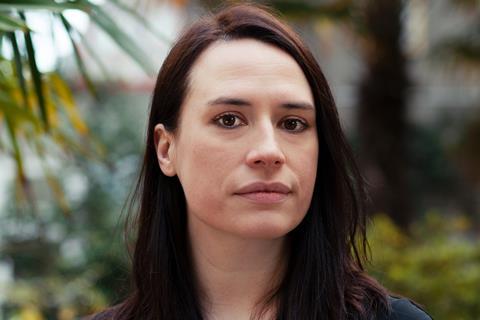
The leadership team of the International Film Festival Rotterdam (IFFR) has addressed the controversy surrounding the restructuring of the festival announced last month.
Speaking in Cannes, Vanja Kaludjercic, festival director at IFFR, and Marjan van der Haar, managing director, said the changes that saw six permanent roles at the festival made redundant were driven primarily by financial considerations. They pointed out similar streamlining has taken place at several other festivals.
All the members of the programming team are now on freelance contracts.
“We had to make hard choices,” Kaludjercic explained. “It is a hard and devastating decision to understand we are no longer in a position to have permanent programming staff. We had to look at the whole organisation and understand how we can deliver the best possible festival in a future that is inclusive, that is open.”
Kaludjercic spoke of her desire to make IFFR “more representative of a different demographic picture than Rotterdam [presently] has, for many audience members who haven’t yet recognised themselves in the festival.
“It is about renewal and bringing a plurality of voices to the table where we can discuss new ideas, new films. The new way of programming feature films is with selection committees where everyone is equal. Change is hard but it is sometimes needed to stay relevant.”
Kaludjercic paid tribute to the veteran programmers who are now departing Rotterdam, some after spending more than two decades at IFFR. She declined to name those leaving but the list is understood to include Gerwin Tamsma, Edwin Carels and Peter van Hoof while another senior programmer, Bianca Taal, now becomes head of IFFR’s Hubert Bals Fund.
Among the other programmers who have left the festival are Julian Ross, Shelly Kraicer, Annina Wettstein and Janneke Langelaan.
“They have made the festival what it is today. One has to recognise that and cherish [it]. But there are economic reasons.”
She added the new committee-driven structure, with freelance programmers, is similar to the structure used by Locarno, Berlin and Cannes’ Directors’ Fortnight.
Among the programmers retained are Stefan Borsos (South and Southeast Asia), Michelle Carey (English-speaking territories), Evgeny Gusyatinskiy (Central and Eastern Europe, Israel), Mercedes Martínez-Abarca (South and Central America, Mexico, Caribbeans), Olaf Möller (German-speaking territories, Nordic countries, the Cinema Regained programme), Lyse Nsengiyumva (Sub-Saharan Africa), Olivier Pierre (French-speaking territories), Delly Shirazi (Middle-East, Northern Africa, Iran, Turkey) and former Shorts programmer Koen de Rooij (Netherlands, Flanders). The new hires include Rebecca De Pas (Italy, Spain, Portugal), Kristína Aschenbrennerova (South Korea, Japan, China, Hong Kong, Taiwan), and shorts programmer Ivan Ramljak.
Private financing makes up approximately 60% of the festival’s annual budget, with public subsidy comprising the rest. The budget for 2023 has fallen by approximately €2m, accounted for both lost ticket sales during the pandemic and private income from commercial partners.

























No comments yet